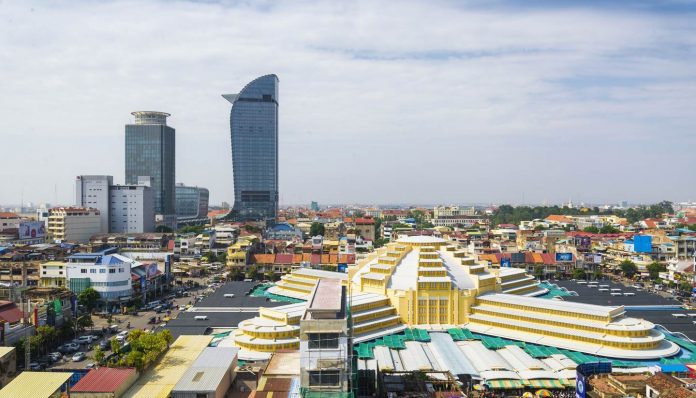The humble construction worker is the backbone of construction. Despite all our advances in technology and automation, we have yet to find ways to replace the back-breaking work that these blue-collar workers provide. These workers are rarely acknowledged in the press or even by the locals.
Their work is dirty and menial, and labourers in Asia tend to lack education and union-styled collective power bargaining. In Cambodia, they sit at the bottom of the country’s social hierarchy.
However, collaborative efforts are being made by NGOs, the arts community and unions to push the government into enforcing its own laws; so that female workers are paid the same as their male counterparts.
The wages given to construction workers are already paltry enough, but having wages be even lower for female workers is unethical to the extreme. This speaks volumes especially since many of the construction companies responsible for work in Phnom Penh are Chinese, Japanese and South Korean; all highly developed nations.
Higher skilled and better paid work is normally reserved for foreign workers, with Cambodian men being paid between US$5 and US$7.50 a day for mixing cement, hauling bricks across building sites, and cleaning up after other workers. This is hard work for such a paltry sum and is especially egregious for the women who are paid even less than the men.
Female workers often get as little as US$2.50 a day. Though they do the same work as men, often side-by-side, women say managers give them a different job title, which enables their employers to skirt equal pay laws.
Pay is often late, some say deliberately withheld, making it difficult to quit and find alternative work, because the company still has their money. That also forces many to borrow when a family emergency, such as health issues, arise. Interest rates of 20 to 30 percent are not uncommon.
The Cambodian economy has grown sharply, amid a rapidly normalizing society coupled with a baby boom in the aftermath of a 30-year war, which ended in December 1998.
However, a widening wealth gap is being touted by analysts as a major concern for Prime Minister Hun Sen, whose ruling Cambodian People’s Party (CPP) will contest commune elections on June 4, widely seen as a precursor for national polls due in July 2018.
Many unions have put the blame on middle men for the abysmal wages. With government backing, a three-year study is underway to determine the extent of the problems and what can be done.
However, both government and unions have struggled to explain why women are paid so much less than men. This is a potential hot topic to look out for during the upcoming Cambodian elections to see what the government and opposition will propose to address the issue.





















